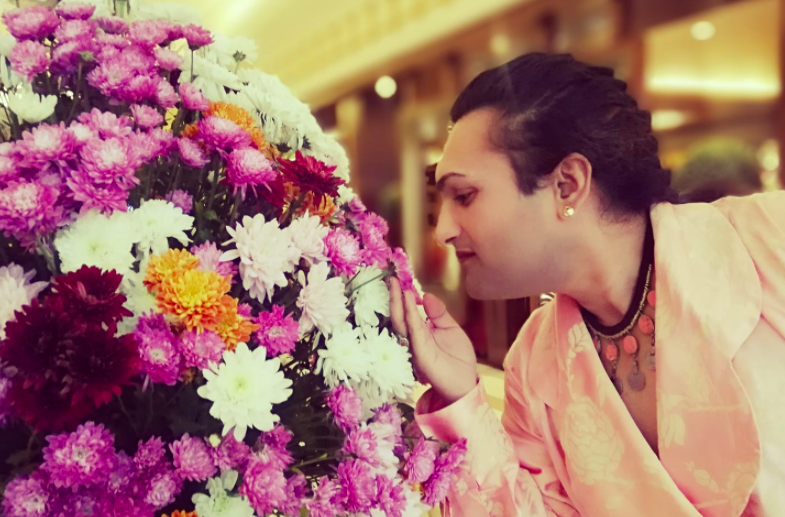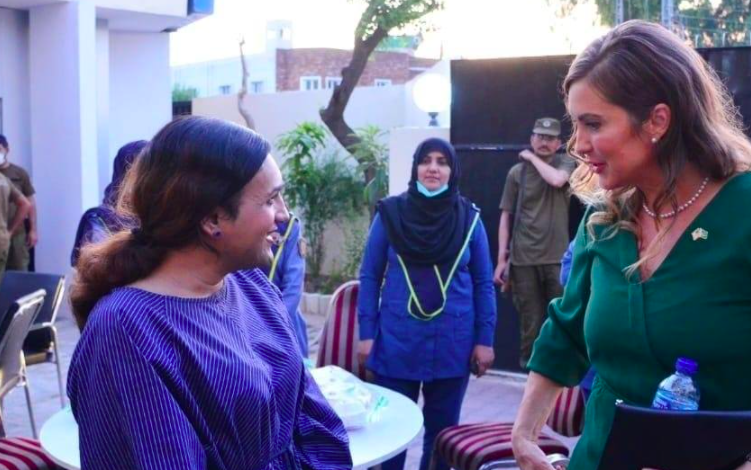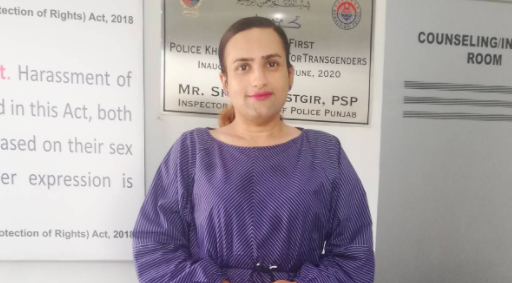Reem Sharif, the first trans police officer in Pakistan, is fighting to change the prejudices that previously held her back (Twitter/@zofeen28)
After enduring death threats, slurs and sexual harassment, Pakistan’s first transgender police officer is using her experience to help others as a trans victim support officer.
Reem Sharif has gone from victim to protector as she resolves disputes and shields trans people from abuse in Punjab, Pakistan’s most populous province.
She has been in the post just two months and she’s already helped protect 16 trans people, reports the Thomson Reuters Foundation.
“The other day we got a call from a trans woman that her brothers had threatened to kill her. I went and talked them into accepting that who they thought was their brother had always been a sister,” 32-year-old Sharif said.
“In another [case], a tenant was being thrown out of her home for being a trans person and I was able to stop that.”
Sharif works at the Tahafuz centre, a pilot project of the Rawalpindi police formed to protect transgender people. Since it opened on May 12 she has received around 40 trans visitors who came to the station “out of curiosity”.

Her success is hard won: she had to endure constant abuse through college, which she described as “the worst years of my life”, in addition to being ostracised by her own family.
“For my brothers, I was always a source of humiliation,” she said.
“One of them told me he would have a problem getting his kids married off if people found out about me. I was very hurt but I said they don’t have to tell anyone about my existence; in any case we live in different cities and I support myself.”
Pakistan is becoming increasingly accepting of trans people after the passage of a 2018 bill which grants broad legal protections for the transgender community.
However, abuse and discrimination are still pervasive in Pakistani society, and the experience of being shunned by families is all too common. This marginalisation makes it harder for trans people to access jobs, education and healthcare.

Leading by example, Sharif intends to prove trans people are capable of leadership roles, inspiring others like her to help change the prejudices that have held them back.
“Unless (trans people) have role models to follow, they will continue in the same footsteps of their predecessors who have survived by begging, dancing or carrying out sex work,” she said.
“But when they see a transgender policewoman or a television anchor or a lawyer, they will realise they can dream and aspire to reach for the stars.”
